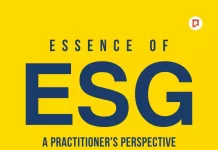Highlights
- Move from focussing heavily on health and education to supporting conservation, liberal arts, and sports.
- American Indian youth contributions are getting bigger
- Philanthropy should be a joyful experience
- Indian CSR needs to focus on long-term sustainability
- Cap on administrative cost big hurdle for Indian NGOs
The India Philanthropy Alliance (IPA) is a coalition of nonprofit, philanthropic, and charitable organizations dedicated to mobilising people and funding in the United States, and elsewhere, to foster development and alleviate poverty in India. It started in late 2017 when leaders from various nonprofits based in the United States shared a common vision for humanitarian and developmental goals in India.
Benedict Paramanand, Editor of SustainabilityNext caught up with him to chat about several promising trends and hard challenges philanthropy is facing today in India and worldover.
To start with, is the microcredit revolution beginning to stagnate after a robust start a couple of decades ago?
I don’t believe so, but I can understand why you would think that. In my book, “Small Loans, Big Dreams,” I delve into the transformative journey of microfinance over the past 15 years. Initially, microcredit emerged as a solution to an invisible market— the vast demand for credit among the world’s poor, particularly women. As microfinance gained momentum, it transitioned into mainstream financial systems. This absorption into the larger financial ecosystem may have led to the perception of stagnation. However, it signifies a healthy integration. Now, the focus has shifted towards financial inclusion and impact investing, underscoring the enduring relevance of microfinance.
Countries like India have made it difficult with rules for microfinance companies of late…
While India has encountered regulatory challenges at times, it’s important to acknowledge the dual nature of its policies. On one hand, certain laws may pose obstacles to philanthropy and microcredit. On the other hand, India has also implemented progressive policies that foster philanthropy and enable microfinance. Despite occasional hurdles, the overall environment for microfinance in India has witnessed significant advancements, especially in the last decade. Notably, the presence of world-class microcredit banks underscores India’s potential as a hub for financial inclusion.
The 2023 report on philanthropy in India highlights the increasing involvement of the younger generation in philanthropy. Do you foresee this trend gaining momentum?
Absolutely. The younger generation of entrepreneurs and affluent individuals are increasingly embracing philanthropy, propelled by factors such as corporate social responsibility (CSR) mandates. India’s CSR law mandates corporate entities to contribute to social causes, fostering a culture of giving back. Moreover, Indian Americans, known for their altruism and volunteerism, are poised to play a significant role in shaping philanthropy. As awareness grows and trust in charitable organizations strengthens, we anticipate a substantial rise in philanthropic contributions, both in quality and quantity.
What would be your marketing pitch to attract more philanthropic support?
My marketing pitch emphasizes the impactful role of high-quality nonprofits in addressing critical societal and environmental challenges. I highlight the effectiveness of these organizations, showcasing their capacity to effect meaningful change. Philanthropy is portrayed as a joyful endeavour, offering individuals the opportunity to make a tangible difference in the world. By fostering trust and highlighting the transformative potential of donations, we aim to inspire greater engagement and support for philanthropic causes.
You mentioned improvements needed in CSR laws in India. Could you specify some areas for enhancement?
The current CSR framework in India could benefit from reforms to foster long-term sustainability and strategic philanthropy. Firstly, extending the planning horizon beyond a single year would enable nonprofits to undertake comprehensive initiatives with lasting impact. Additionally, there’s a need to address geographic disparities in funding allocation, ensuring equitable distribution across urban and rural areas. By aligning CSR regulations with the long-term goals of social impact, we can optimize the effectiveness of corporate philanthropy.
NGOs reliant on CSR funding face challenges due to restrictions on administrative costs. How do you propose addressing this issue?
The fixation on minimizing administrative costs overlooks the critical role of organisational infrastructure in driving impact. Instead of rigidly adhering to cost ratios, donors should prioritize effectiveness and outcomes. By investing in talent and operational excellence, nonprofits can amplify their impact and foster sustainable growth. It’s imperative to shift the narrative towards valuing efficiency and efficacy over simplistic cost metrics, thereby empowering NGOs to attract and retain top talent.
With climate change emerging as a pressing concern, what new philanthropy areas require attention?
Beyond traditional focus areas like health and education, philanthropy must adapt to address emerging challenges such as environmental conservation and climate resilience. Issues like access to clean water, biodiversity preservation, and sustainable agriculture demand concerted philanthropic efforts. Moreover, there’s a growing recognition of the importance of arts, humanities, and animal welfare in fostering holistic societal development. By diversifying funding priorities and embracing innovative approaches, philanthropy can effectively tackle evolving global challenges.
Is the relationship between the government and NGOs in India improving?
The dynamics vary significantly between federal and state levels. While federal politics can be ideologically driven, state and local governments often showcase pragmatic, collaborative efforts with NGOs. This “competitive federalism” has led to effective partnerships that could serve as models for other countries. However, fostering trust and cooperation remains an ongoing challenge.
What are the future plans for the India Philanthropy Alliance (IPA)?
IPA aims to further the tradition of India Giving Day, fostering a culture of philanthropy among Indian Americans and beyond. The focus is on making philanthropy more inclusive, especially for the youth, and transforming it from transactional to transformational experiences. Through initiatives like the youth essay competition and highlighting effective, innovative charities, IPA seeks to build trust in philanthropy and encourage a legacy of giving back.
Watch Full Interview – https://youtu.be/V6pd3P6i8f4












